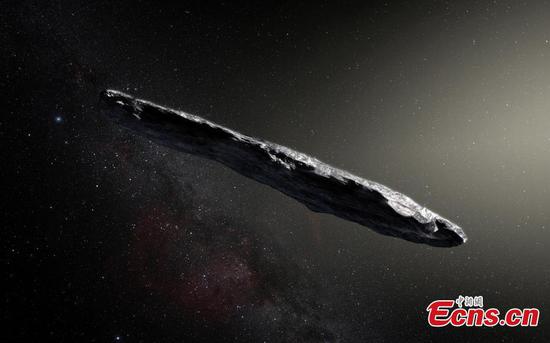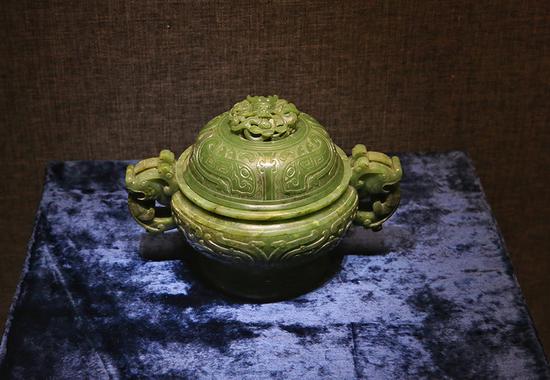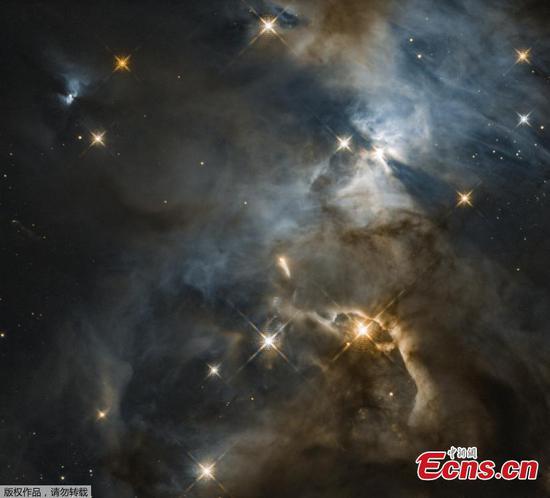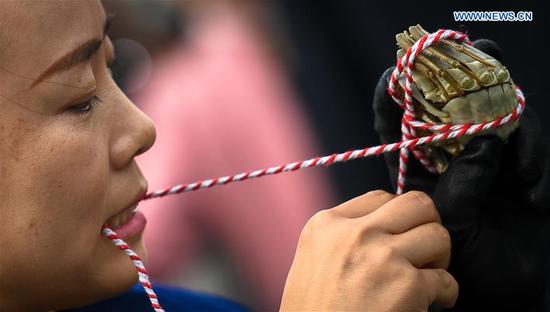
Artist's concept of interstellar asteroid 1I/2017 U1 (‘Oumuamua) as it passed through the solar system after its discovery in October 2017. (Photo/Agencies)
A new study of Harvard scientists suggested that "`Oumuamua," the first interstellar object discovered within our solar system last year, may have been an alien probe sent to investigate Earth.
`Oumuamua, which means "a messenger from afar arriving first" in Hawaiian, was discovered on Oct. 19, 2017 by astronomers at the University of Hawaii.
On Sept. 19, it sped past the Sun at about 315,400 kilometers per hour (kmh), fast enough to escape the Sun's gravitational pull and break free of the solar system, never to return.
A new paper by researchers at the Harvard Smithsonian Center for Astrophysics raises the possibility that the elongated dark-red object, which is 10 times as long as it is wide and traveling at speeds of 196,000 mph (315,364 kmh), might have an "artificial origin".
The paper is scheduled for publication in The Astrophysical Journal Letters on Nov. 12.
"`Oumuamua may be a fully operational probe sent intentionally to Earth vicinity by an alien civilization," according to the paper.
Abraham Loeb, one of the co-authors and chair of the astronomy department at Harvard University, told Xinhua on Tuesday `Oumuamua showed unusual features since its discovery. "These features make `Oumuamua weird, belonging to a class of objects that we had never seen before."
`Oumuamua deviates from a trajectory that is solely dictated by the Sun's gravity. This could have been the result of cometary outgassing, but there is no evidence for a cometary tail around it, he told Xinhua via email.
"The excess acceleration of `Oumuamua was detected at mutiple times, ruling out an impulsive kick due to a break up of the object," he said.
Scientists researched on extra force exerted on `Oumuamua by sunlight. In order for it to be effective, `Oumuamua needs to be less than a millimeter in thickness, like a sail. This led us to suggest that it may be a light-sail produced by an alien civilization," Loeb said.
"The evidence about `Oumuamua is not conclusive but interesting. I will be truly excited once we have conclusive evidence," he told Xinhua.


















































